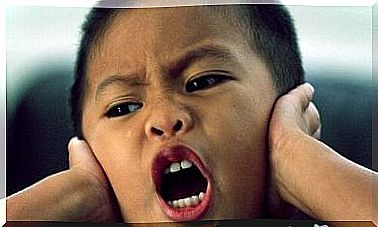The Steps For Cognitive Development According To Piaget

Psychologists study cognition by analyzing mental routines linked to knowledge. This discipline is called cognitive psychology. Cognitive psychology refers to studies of the mechanisms involved in knowledge formation.
Piaget’s stages of children’s cognitive development
Cognitive development is an important area in psychology, and therefore psychologists have developed various theories that focus on the study of thought processes. Piaget’s theory of cognitive development is among the most important.
Piaget considered it important to let children explore in order to learn. This exploration affects their cognitive development.
This Swiss psychologist also believed that children of all ages can solve different situations and problems. Piaget evaluated common mistakes made by children of different ages.
His observations led him to the conclusion that children in the same age group make the same mistakes. As a result, Piaget also found that cognitive development takes place in a developing sequence.
Piaget referred to this sequence as stages of cognitive development. He argued that the stages of this process follow a strict order for all children from all countries. However, the exact age at which a child passes through each step may vary slightly from one child to another.
Piaget’s theory divides cognitive development into 4 stages. Below we see each step in detail:
Step 1: The sensorimotor phase
The first phase of cognitive development is the sensorimotor, which lasts from birth to 2 years. Here children learn to experiment and discover things around them.
They do it with the help of their 5 senses and their motor abilities. Until then, children do not understand that objects continue to exist even when they cannot see them. That’s why it’s so fun to play peek with them, when you first cover your face and then magically return.

Piaget’s conclusions regarding the sensorimotor phase
The child begins to learn about the world around him, and this knowledge will serve as the basis for the next step.
Step two: The pre-operational phase
The pre-operative phase begins to appear in children around the age of two and lasts up to 7 years. The phase is characterized by egocentrism, which is typical of children in this age group.
Their egocentric perspectives make them incapable of absorbing the perspectives of others. In other words, they have a hard time seeing something from another angle, or getting into other people’s shoes.
Although children closer to 6 or 7 years of age may begin to show empathy, the egocentric mindset is dominant during the majority of the phase. The child understands the world from his own special perspective.
Children in this developmental stage begin to manifest and use symbolism to express themselves. In other words, they can talk.
Piaget’s conclusions regarding the pre-operational phase
The transition from the sensorimotor phase to the pre-operational one takes place through imitation. Imitation creates an image in the child’s brain, a process that involves language.
Step three: The concrete-operational phase
Piaget’s third stage of cognitive development begins at the age of 7 and lasts until 12 years. During the concrete-operational phase, children begin to apply principle and logic. They can solve problems in a more rational and logical way, but only when it comes to concrete objects or events.
Children in this age group cannot yet handle abstract concepts. In fact, their thoughts are centered around what they do.
According to Piaget, children in this phase can also conduct inductive reasoning.
Piaget’s conclusions regarding the concrete-operational phase
This period is marked by a gradual decline in egocentrism. This is due to the child’s growing understanding of groupings, but it has not yet developed abstract thought and reasoning.

Step four: The formal-operational phase
The fourth stage of cognitive development is the formal-operational phase, which begins at about 12 years of age. At this time, the child is in early adolescence, which leads him to adulthood.
The teenage child can now handle abstract thought. Therefore, he can now hypothesize.
That the child can imagine means that he no longer only thinks about reality, but also about how to do things. Children in this phase have a better understanding of the environment around them, as well as cause and effect.
Piaget’s conclusions regarding the formal-operational phase
Upon arrival at the fourth stage, the individual’s ability to reason is mainly centered around moving towards the facts. This is the time when the child begins to develop her own theory of how she sees the world.
Although most children reach this stage, not all do. Unfortunately, those who do not do so are labeled as less intelligent.
Conclusion
These are the four stages of cognitive development according to Piaget. The well-known psychologist believed that the whole process of developing intelligence could be linked to a stimulation process that involves 2 essential aspects. These are assimilation and adaptation.
It is very important for parents to be aware of Piaget’s stages of cognitive development in order to be sure that their children develop healthily, from birth to adulthood.
This awareness also gives parents a better understanding of their children’s age-related abilities, in addition to helping them provide adequate activities and avoid forming unrealistic expectations of their children.









